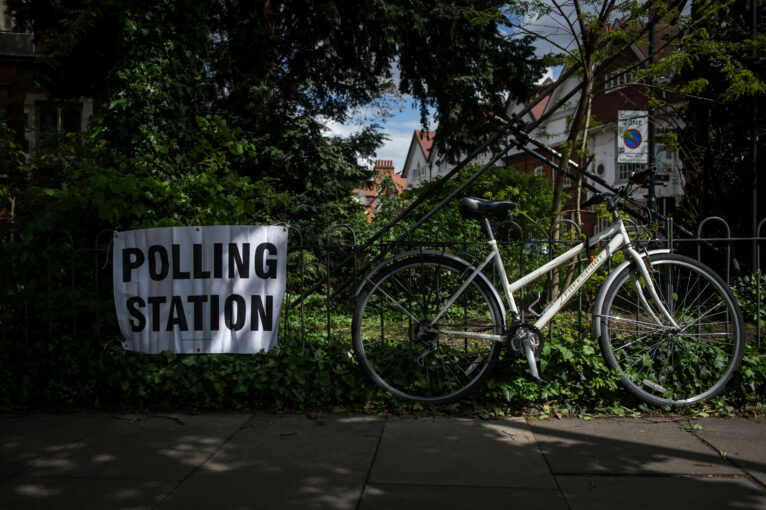2024 Elections: Are UK Political Parties Ready for the Environmental Challenge?

In the run-up to the 2024 UK general elections, the political landscape is buzzing with promises, pledges, and plans. Among the myriad of topics vying for attention, the environment stands out as a particularly contentious issue. With Brexit’s lingering aftershocks, a global economic crisis, and a history of frequent policy U-turns, the question arises: are the major political parties genuinely committed to environmental change, or is this merely another exercise in greenwashing?
The Conservative Party, led by Prime Minister Rishi Sunak, has a complex relationship with environmental policy. On one hand, Sunak’s government has shown some commitment to green initiatives. Yet, these commitments are often overshadowed by controversial decisions that seem to prioritise economic growth over environmental sustainability. Notably, Sunak’s delay on the ban of petrol and diesel cars, initially set for 2030, and the new licenses granted for North Sea oil developments raise eyebrows. These actions suggest a prioritisation of short-term economic gains, likely influenced by the global economic crisis, over long-term environmental benefits. Critics argue that these moves undermine the UK’s credibility in leading global climate efforts, especially after the ambitious rhetoric displayed at COP26 in Glasgow. As Jeremy Moulton aptly captured it in our “Green Day” series last year, “for all the rhetorical commitments to action – the documents shared showed that the government is already falling behind on previous aims”.
Labour, under Keir Starmer, has also faced scrutiny over its environmental commitments. Initially, Labour’s £28 billion-a-year green investment pledge was seen as a bold step towards a sustainable future. However, the party’s recent U-turn, blaming the economic situation, has left many environmental advocates disappointed. This retraction raises questions about Labour’s resolve to implement significant environmental reforms. While Starmer insists that Labour remains committed to addressing climate change, the scaling back of their flagship green investment plan suggests otherwise. This U-turn reflects the broader challenge of balancing economic and environmental priorities in a time of financial uncertainty.
The Scottish National Party (SNP), which saw leadership changes from Nicola Sturgeon to Humza Yousaf and now John Swinney, has also experienced turbulence in its environmental stance. The SNP had initially positioned itself as a strong advocate for climate action. However, a notable climate U-turn under Yousaf, where the government walked back on the Bute House Agreement with the Greens, cast doubt on their commitment. Swinney now faces the challenge of restoring credibility and ensuring that Scotland’s environmental policies align with its ambitious net-zero targets. The political dynamics in Scotland highlight the complexities of maintaining a consistent environmental agenda amidst changing leadership and economic pressures.
In Wales, Welsh Labour, transitioning from Mark Drakeford to Vaughan Gething, presents a different narrative. Gething has emphasised continuity in the party’s environmental stance, advocating for a ban on coal and aiming for net-zero emissions by 2035. This ambitious target sets Welsh Labour apart, but it also raises questions about feasibility and economic implications. Plaid Cymru, the nationalist party, has proposed even more aggressive environmental policies, including higher windfall taxes and a robust push for renewable energy. The competition between Welsh Labour and Plaid Cymru on environmental issues highlights a regional dynamic where climate policy is a significant electoral battleground, reflecting the urgency felt by the Welsh electorate.
Northern Ireland presents a different dynamic, with climate politics often intertwined with broader sectarian and political issues. The Democratic Unionist Party (DUP) has traditionally been less enthusiastic about stringent environmental policies, often prioritising economic and agricultural interests. However, the growing popularity of Sinn Féin introduces a new dimension to the environmental debate. Despite Sinn Féin’s public commitment to net-zero targets, internal contradictions have emerged. For example, the party’s Finance Minister rejected all climate change funding bids, sparking criticism and questioning the party’s true dedication to environmental causes. This ambivalence highlights the challenges Sinn Féin faces in reconciling its environmental rhetoric with practical governance.
The major parties’ environmental agendas must also be viewed in the context of voter priorities. Recent polls by Ipsos indicate that while climate change remains an important issue for many voters, it is often overshadowed by immediate economic concerns. The cost of living crisis, exacerbated by global economic instability, has made many voters more focused on financial stability and job security. This shift in voter priorities poses a dilemma for political parties. They must balance the need to address long-term environmental challenges with the imperative to respond to immediate economic pressures.
Reflecting on the past few election cycles, there has been a noticeable shift in how environmental issues are framed and prioritised. In 2017, the environment was a relatively minor aspect of the political debate, overshadowed by Brexit negotiations. By the 2019 election, environmental issues had gained more prominence, partly due to the increased visibility of climate activism and growing public awareness of climate change impacts. However, the ongoing global economic crisis and the immediate pressures of the post-pandemic recovery have once again pushed environmental concerns to the periphery of political discourse in 2024.
This cyclical relegation of environmental issues highlights a fundamental challenge in contemporary politics: the tendency to prioritise short-term economic and political gains over long-term sustainability. While there is growing recognition of the need for comprehensive environmental action, translating this recognition into consistent and impactful policy remains a formidable task. The frequent policy U-turns and conflicting signals from major political parties only serve to undermine public confidence in their commitment to genuine environmental change.
As the 2024 general elections draws near, the environmental agendas of the major political parties are under intense scrutiny. While there are notable differences in their approaches, a common thread is the struggle to balance environmental aspirations with economic realities. Ultimately, the true test of these parties’ commitments will be their ability to implement and sustain meaningful environmental policies beyond the election cycle, ensuring that green promises do not simply remain electoral rhetoric.




